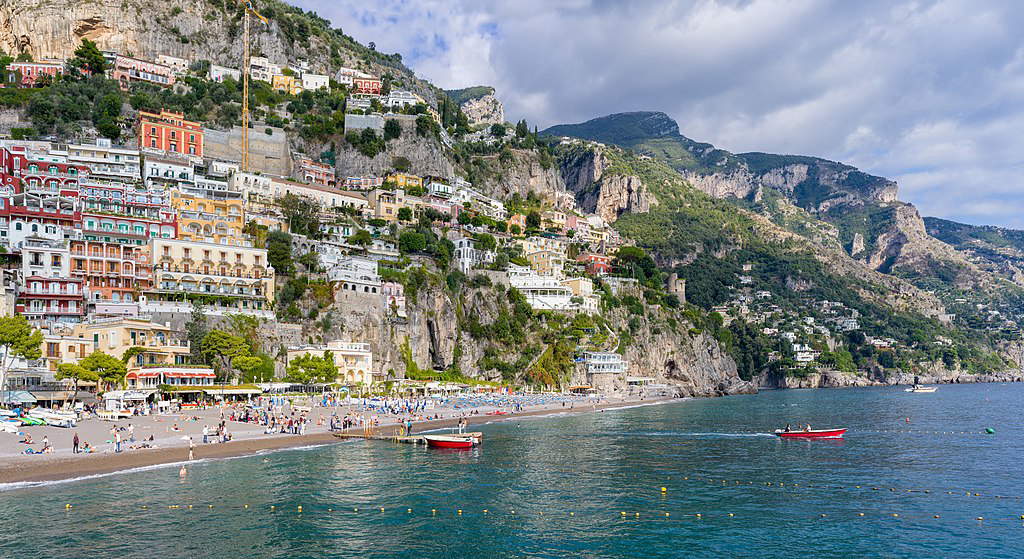American tourists caught in the grip of the heat staggering up and down Europe, hoping that someone will cater to their habits (definitely “cooler” than those of our latitudes), but forced to clash with the more rigid culture of those who live on this side of the ocean. This is the account of vacations in Europe that The New York Times published in its columns the day before yesterday, in an article by Melina Delkic. Ice baskets for water? An iced coffee? Being able to walk everywhere in flip-flops or dine in Bermuda shorts? Situations that are widely tolerated in the US, in Italy, France and other European countries risk raising eyebrows. Or lead to demands that will not be met.
The article begins with the account of a couple, Chloe Madison and Colin Pinello, vacationing in Positano, on the Amalfi Coast, who dined on caprese and spritz, and declined to ask for water with ice cubes: “asking for it would have been too American.” Added to this was astonishment at the locals ’ behavior in regard to the heat: “while the Europeans around them seemed impassive about the temperatures, they felt burned out,” Delkic writes.
“I couldn’t help but notice the extraordinary contrast between the way Americans and Europeans handle a heat wave,” noted Chloe Madison, stating that Europeans “don’t seem to rely much on things that Americans consider essential.” What are these things that U.S. tourists do not find in Europe? For example, a pitcher of water filled with ice cubes served in a restaurant. A glass of iced coffee, which is often not an option at the bar you chose to enter. Or ice in the wine. Dryers. Sometimes, in many establishments, you won’t even find air conditioning. And when there is, it is almost never at glacial temperatures the way Americans like it. One creator reached by the author of the article, Amanda Rollins, was surprised to observe that on going to a cinema in Paris, there was no “freezing” style air conditioning of American cinemas, and that the audience simply cooled off with fans. Also, everything about etiquette in dressing. “Here in Italy,” joked Stefano Lodi, general manager of Florence’s Hotel Brunelleschi, “we dress well even to go empty the trash in the street.” So here are some simple tips for adapting to local customs: avoid beachwear when walking around town, forgo shorts and crop tops in a fancy restaurant (in some places you might even run the risk of being turned away, not to mention churches, of course).
The problem, however, goes beyond mere costume notes. Indeed, a serious question of sustainability and hospitality could arise. With American tourists, in their first year of a total green light after the pandemic, beginning to flock to Europe in droves, but with the growing problem of heat waves caused by climate change, “American sensibilities,” Delkic writes, “are clashing with European etiquette and norms.” And that much is clear. But what if American tourists get tired of it, and opt for destinations where they feel freer, less subject to the dirty looks of natives, or where they can simply get their pitcher of ice water at the restaurant? Will European resorts have to adapt to American customs (even the boorish ones, such as the demand to enter in flip-flops everywhere) to avoid being deserted? Americans are gasping for now, but could they change destinations in the future?
Image: view of Positano. Photo: Wolfgang Moroder
 |
| Vacationing in Italy by American tourists? Too hot and hard to get used to local customs |
Warning: the translation into English of the original Italian article was created using automatic tools. We undertake to review all articles, but we do not guarantee the total absence of inaccuracies in the translation due to the program. You can find the original by clicking on the ITA button. If you find any mistake,please contact us.